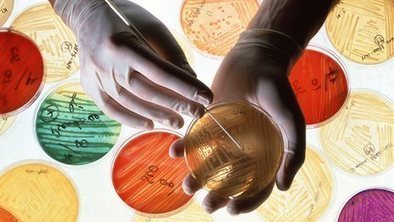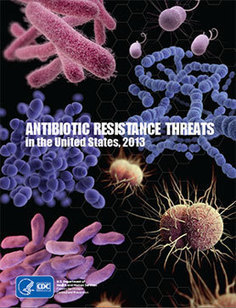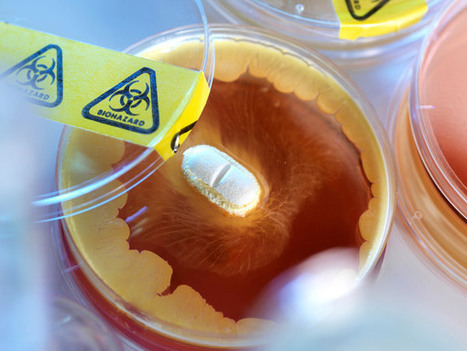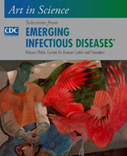Food Safety News How CDC Uses Antibiotic Resistance Data Food Safety News Over the past year, you may have noticed that antimicrobial resistance information has been incorporated in the outbreak reports put out by the Centers for Disease Control...
Get Started for FREE
Sign up with Facebook Sign up with X
I don't have a Facebook or a X account
 Your new post is loading... Your new post is loading...
 Your new post is loading... Your new post is loading...
Michael Totten's comment,
September 23, 2013 12:29 AM
One thing we all should be doing is avoid using any of the anti-microbial soaps that now found around every faucet. The triclosan in the soap kills off all the benign bacterial, creating a vacuum for the more virulent bacteria to thrive. It's a commercial gimmick that should be resisted and reversed. See the medical advice posted at Alliance for Prudent use of Antibiotics, http://www.tufts.edu/med/apua/ and particularly the White Paper on Triclosan, http://www.tufts.edu/med/apua/consumers/personal_home_21_4240495089.pdf
|

Eli Levine's curator insight,
April 30, 2014 8:41 PM
It seems that we are about to get closer to death, as our antibiotics, pesticides, herbicides and all other methods of cheating death, disease and crop failure fail.
This is before we get into conversations about the looming international and intranational conflicts that are simmering beneath the surface. At least these can be dealt with with sensible policy changes and changes in attitude, perspective and disposition, if not out right content in our leadership cadres.
But alas, I don't see that happening in the foreseeable future.
Time is ticking away.
And we too will go through an indiscriminate die off phase where friends and family will die off, along with enemies and pestilential people as well.
I'd like to think that we'd come off better than before.
But, that's the thing about these indiscriminate methods of killing large swaths of the population. It very rarely yields anything other than what was already present.
At least wages should be better, due to the new shortage of laborers (assuming that robots haven't taken over our labor force in the meantime).
I'd like to think that our lot is constantly improving, even during these negative phases.
But, I know that it's not going to be easy, especially for most of our Western and American population who don't have experience handling these kinds of things.
Ah well.
Think about it.
|

















CDC are one fo the organisations leading information release on antimicrobial resistance. This article explaines where to find out more info from CDC on this area. Worth reading.